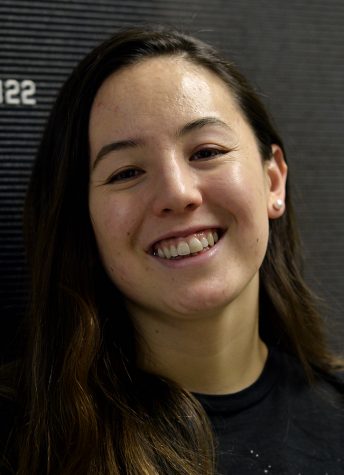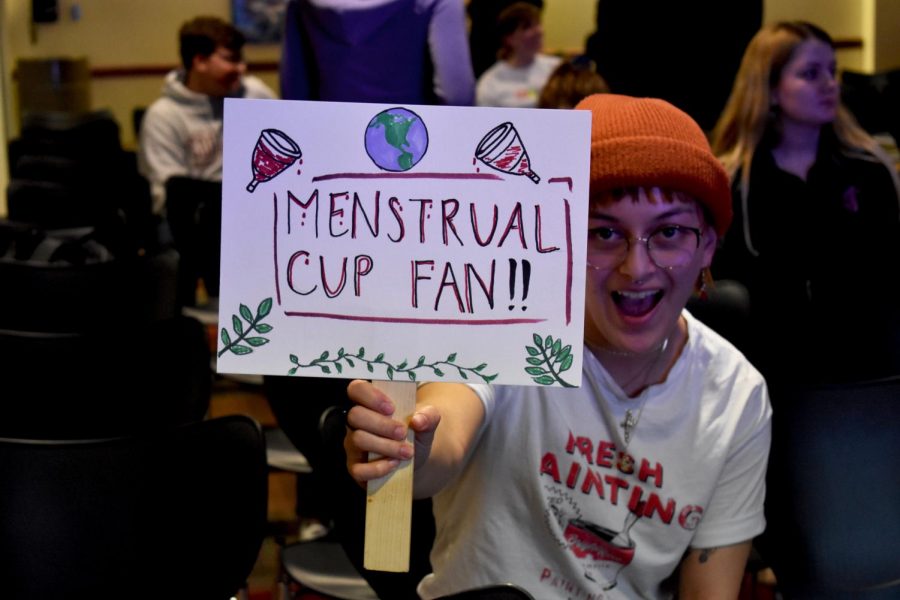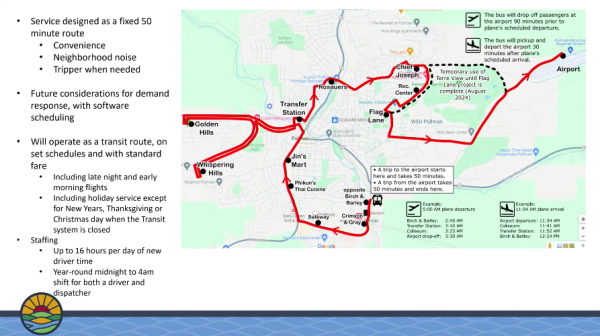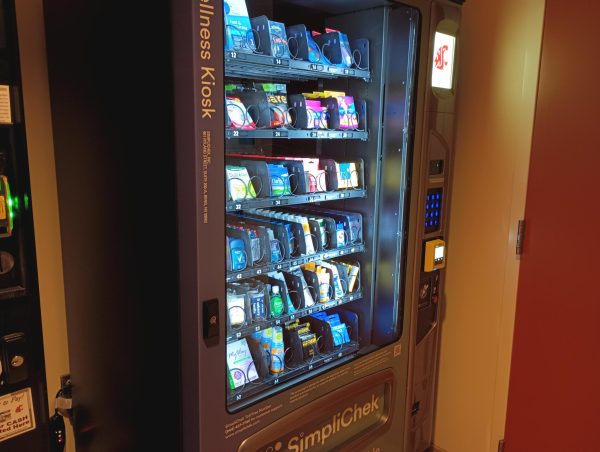Addressing menstrual inequality, on period
Using cups, washable pads, period underwear can save money over time, reduce waste, lower environmental impact
Menstrual cups cost around $30 and are made of medical-grade silicone. The cups can last up to 12 hours and are inserted similarly to a tampon. The cups should be washed with water and gentle soap.
Roughly half the population experiences menstruation, but for those who do, period products are often inaccessible, expensive and environmentally costly.
WSU Period ran a workshop Tuesday on switching to sustainable menstrual products, which can save money and reduce waste, said Aydan Garland-Miner, WSU chapter president.
“One in four menstruators lack access to menstrual products, which is a huge issue,” Garland-Miner said. “Menstrual inequity and not having access to proper menstrual products is not only physically uncomfortable, but also very emotionally stressful and draining.”
Although the costs of reusable products are higher than disposable products up-front, they cost less in the long run, Garland-Miner said.
“I just don’t think it’s an option a lot of people think about because it’s so automatic,” said Dorothy Greenhalge, a freshman architecture major and WSU Period member. “To go to the store and buy tampons and pads, it’s what your mom taught you so it’s probably what most people do, but I think it’s really important for the earth.”
According to an article by Slate, the average menstruator is estimated to produce roughly 250 to 300 pounds of garbage from menstrual products in their lifetime.
There were three main types of reusable period products covered at the workshop: reusable pads, menstrual cups and period underwear.
Reusable pads
A set of reusable pads costs between around $14 to $30 online, depending on the brand and count. Instead of using an adhesive backing as disposable pads do, reusable pads rely on snaps on the wings.
The pads can be soaked in cold water to remove the stains, then hand or machine washed. They should not be stored in plastic bags, and should not be washed with bleach or harsh chemicals.
Menstrual cups
There are multiple brands of menstrual cups, with most carrying two different sizes and running around $30. Cups are made from medical-grade silicone and can be emptied as needed. Cups can also last up to 12 hours, while tampons should be replaced every four to six hours to avoid toxic shock syndrome.
Cup users should wash their hands before using the cup, which is folded, then inserted like a tampon where they pop open and create an airtight seal.
After use, the contents can then be dumped in the toilet, and the cup washed with water and a gentle soap. If someone is in a public bathroom, it’s OK to not wash the cup right away, Garland-Miner said.
“If you’re in a public restroom, you can just dump it in the toilet, you don’t have to go through the whole washing phase,” she said. “If you want to wash it in the sink, go for it, be a period warrior, but if you don’t, no worries.”
Like the pads, menstrual cups should not be stored in plastic, but rather kept in the fabric bag they come with. If a cup user wants to make sure they’re being extra hygienic, they can boil the cups when they’re done using them at the end of a cycle, Garland-Miner said.
Period underwear
Period underwear looks and feels the same as normal underwear, Garland-Miner said. However one pair can cost around $40. A pack of underwear can cost between around $80 to $100. Period underwear can be used for about four hours of bleeding, then switched out for another pair or product.
Other issues
In addition to holding workshops, WSU Period advocates for increased accessibility to menstrual products.
WSU Period has partnered with other groups on campus and individuals including GIESORC director Matthew Jeffries, the Gender Inclusive & Trans* Support Work Group and Jaime Nolan, associate vice president for Community, Equity and Inclusive Excellence, to provide menstrual products in bathrooms on campus, Garland-Miner said.
“WSU is pretty ahead of the times as far as colleges and universities go,” she said.
Ideally, all buildings should have menstrual products, Garland-Miner said, but so far they’re limited to the CUB, the SPARK, the CUE, Todd Hall and some restrooms in the Terrell Library, the Commons and Troy Hall.
The group has also worked on statewide legislation to increase the accessibility of hygiene items in schools.
“We took on what’s called policy bootcamp, which is basically, for us, trying to get menstrual products in all public schools in Washington state,” Garland-Miner said.
The group is currently trying to get state legislation passed that would provide free menstrual products in schools grades 6 through 12.
Accessible period products and destigmatizing menstruation is important, Greenhalge said.
“Menstruation is something that can be kind of icky for some people, and I don’t think that it should be like that,” she said. “Half the population experiences it once a month, like, it’s not weird, it’s not gross.”
Lack of access to menstrual products can cause stress and make it harder to succeed academically, Garland-Miner said. Students may worry about where to find a pad or if they’re bleeding through clothing instead of their studies.
“In the last two weeks we were in Jackson [Hall] and a friend of mine didn’t have a pad,” she said. “The machine was 25 cents and we had to run to class and ask every single person if they had a quarter, and we got the quarter, we got to the machine and the machine was empty.”
There’s also a so-called “pink tax” in Washington, which classifies menstrual products as luxury items despite their necessity for menstruators. Part of the problem is that people are uncomfortable talking about periods, Garland-Miner said.
“There’s a stigma against menstruation, girls sliding tampons up their sleeves or down their boot,” she said. “That’s also an impediment to our ability to talk about it, especially when it comes to policy. Because in my experience, even at WSU, the people who are dealing with the money are often the people who are also resistant to having the conversations.”
Editor’s note: This story was updated to include the full list of buildings on campus that offer free menstrual products.

Rachel is the Roots editor for the spring 2020 semester. She started working for The Daily Evergreen in the fall of 2016, and previously served as editor-in-chief,...

















